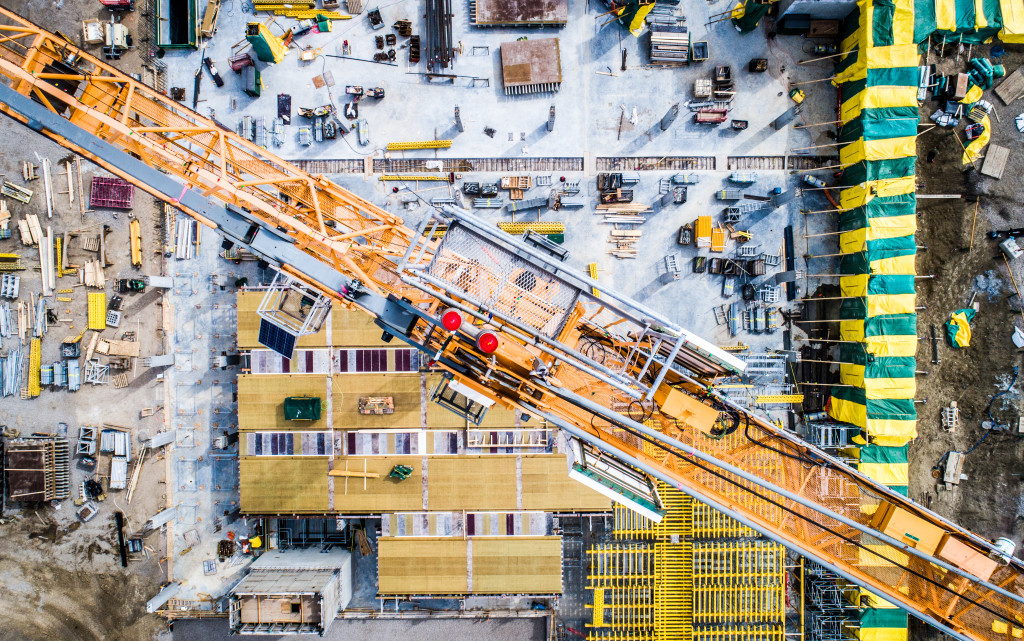- Construction projects involve a significant amount of investment, and they have the potential for expenses to pile up quickly.
- A cost-effective construction project does not mean low-quality but rather optimizing expenses while achieving an excellent result.
- Developing an appropriate plan is crucial for success, including identifying risks and creating a schedule for work duration.
- Hiring skilled tradespeople can save time, reduce the waste of raw materials, and ensure that the project is completed effectively.
- Purchasing raw materials in bulk can save money through discounts and reduced transportation costs.
Construction projects involve a huge amount of investment, and it’s not uncommon for the expenses to pile up quickly. A substantial portion of a building project budget goes into purchasing raw materials, machinery, laborers, and other miscellaneous costs.
However, a cost-effective construction project doesn’t necessarily mean a low-quality one. The objective of a cost-effective construction project is to optimize the expenses while still attaining an excellent result.
As a general contractor, you have numerous responsibilities to ensure that the project gets delivered on time, without compromising the quality. This blog post will dissect the five ways to help you make your construction project cost-effective while retaining an impressive outcome.
Develop an Appropriate Plan

Developing an appropriate plan is crucial to the success of the construction project. It’s where all the necessary details of the project get outlined. At this stage, it’s essential to determine what needs to be done, how it should be done, and what components are crucial.
For instance, you can start by identifying the potential risks and creating a comprehensive risk management strategy. Furthermore, you can create a schedule for work duration, including all the crucial deadlines.
Hire Skilled Tradespeople
Efficient workers are a significant asset in the construction industry. They perform their work in a proper way without wasting raw materials and time. Also, experienced personnel will know the most cost-effective way to make the construction project successful.
Take time when recruiting your team, and ensure that candidates have the necessary qualifications and experience to do the job effectively. Hiring inexperienced workers may appear cheaper, but their lack of knowledge and training could cost you more in the long-run.
Purchase Raw Materials in Bulk
Purchasing raw materials in bulk is another cost-saving strategy. Bulk purchasing can frequently earn you great discounts from suppliers. As a result, you can save considerable money on raw materials by ordering them at a lower cost.
Furthermore, buying raw materials in bulk lowers transportation expenses when buying materials in small quantities and can save time. Order straightforwardly from the manufacturer if possible, this will prevent additional costs that come with purchasing from a middleman.
Rent Equipment
Another cost-effective strategy is renting equipment. Instead of purchasing the necessary machinery, leasing or renting the equipment can be an excellent approach. Renting eliminates the need for maintaining machinery and storage, freeing up resources for other activities in the construction project.
One of the most crucial equipment in construction projects is a crane. Crane rental services are available for different types of cranes, depending on the requirements of your project. Renting cranes can save you a significant amount of money as there’s no need to invest in purchasing and maintaining these expensive pieces of machinery.
Use Energy-Efficient Materials
With scarce energy sources, finding ways to reduce energy consumption and minimize waste is essential. One way to achieve this is by using energy-efficient materials in construction. Here are a few points to remember:
Save Energy and Reduce Costs
Use natural lighting and ventilation to reduce energy costs as much as possible. This can be done by incorporating windows, skylights, and other openings in the building’s design.
Use Sustainable Building Materials

Sustainable building materials are known for their long lifespan and energy-saving properties. For example, using recycled construction waste materials minimizes the need for new raw materials while reducing waste disposal costs. Renewable energy sources such as solar panels and wind turbines can also generate power, reducing reliance on traditional energy sources.
Implement Energy-Efficient Design Strategies
Proper design strategies, such as incorporating insulation and utilizing thermal mass construction techniques, can help reduce heating and cooling costs. Furthermore, choosing eco-friendly building materials like bamboo and cork can also contribute to a more energy-efficient construction project.
Consider the Usage of Green Roof Systems
Green roof systems, also known as living roofs, are becoming increasingly popular in construction projects. They cover a building’s roof with vegetation and soil, which helps regulate indoor temperature and improve air quality. Green roofs can reduce heating and cooling costs, improve stormwater management, and increase a roof’s lifespan by protecting it from UV rays and extreme temperatures.
Final Thoughts
Constructing cost-effective projects requires more effort and planning, but the result is worth it. Being cost-effective reduces the risks of going over budget, delivering the project on time, and achieving maximum efficiency.
So, before your next construction project, implement these strategies and enjoy reduced expenses, increased productivity, and a successful project completion.
